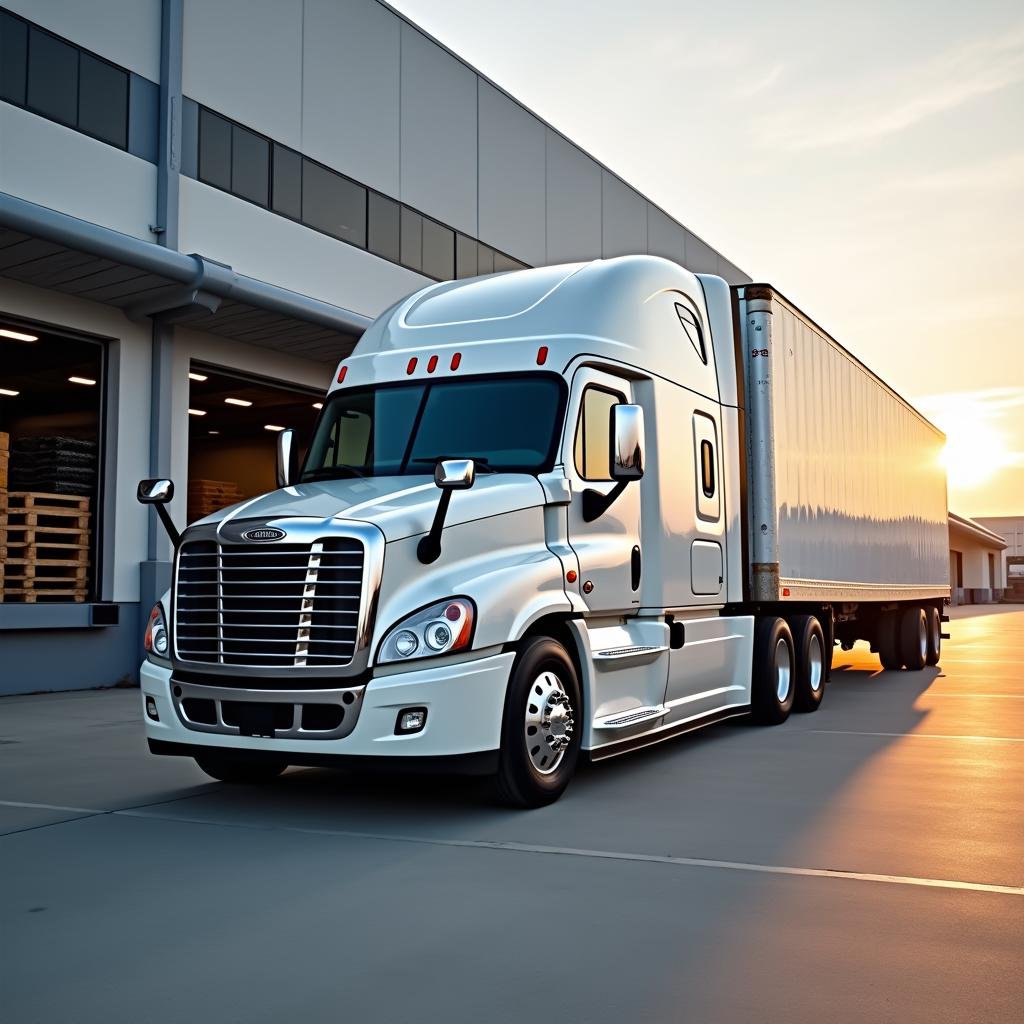In the competitive world of transportation and logistics, successful trucking company owners understand that true achievement goes beyond simply purchasing trucks and finding loads. The difference between struggling operations and thriving enterprises often comes down to specific habits and strategic approaches that top performers consistently implement. With over 928,000 trucking companies registered in the United States according to the Federal Motor Carrier Safety Administration, standing out requires more than just hard work—it demands working smart.
Whether you’re a seasoned veteran in the trucking industry or just starting your fleet management journey, adopting these seven proven habits can transform your business operations and set you on the path to long-term success. From effective fleet management strategies to innovative approaches for maintaining driver satisfaction, these practices represent the foundation upon which thriving trucking businesses are built.
1. Embracing Strategic Financial Management
The most successful trucking company owners treat financial management as the backbone of their operations rather than an afterthought. They understand that in an industry with thin profit margins—typically between 3-8% according to industry standards—every dollar saved directly impacts the bottom line.
Maintaining Healthy Cash Flow
Top performers implement systems to ensure consistent cash flow, recognizing that delayed payments can quickly cripple operations. They:
- Establish clear payment terms with clients and enforce them consistently
- Utilize freight factoring services strategically to convert invoices to immediate cash when necessary
- Maintain emergency operating funds sufficient to cover at least 3-6 months of expenses
- Implement fuel management programs to control one of their largest variable costs
They also recognize the importance of accurate expense tracking and regularly analyze their cost-per-mile metrics to identify inefficiencies. By understanding exactly where money flows within their organization, these owners make informed decisions that strengthen financial stability.
Strategic Investment Decisions
Rather than making impulsive purchases, successful owners carefully evaluate potential investments based on return potential. They conduct thorough cost-benefit analyses before adding vehicles to their fleet, implementing new technologies, or expanding into new markets.
This disciplined approach to financial management creates a foundation that allows for sustainable growth and better positions the company to weather industry downturns.
2. Prioritizing Preventative Maintenance Programs
Vehicle breakdowns represent more than just repair costs—they impact customer service, driver satisfaction, and overall reputation. Industry leaders in commercial fleet management understand that preventative maintenance isn’t an expense but rather an investment that pays significant dividends.
Systematic Maintenance Scheduling
Successful companies implement rigorous maintenance programs that include:
- Regular inspection schedules that exceed minimum requirements
- Digital tracking systems to monitor maintenance history and forecast needs
- Driver training on daily vehicle inspections and early problem identification
- Relationships with reliable service providers in multiple locations
According to the American Transportation Research Institute, unscheduled maintenance events cost significantly more than preventative care and result in cascading inefficiencies throughout operations.
Data-Driven Fleet Management
Rather than relying on manufacturer recommendations alone, top trucking company owners analyze their specific operational data to optimize maintenance schedules based on actual usage patterns, regional conditions, and load types.
This proactive approach significantly reduces downtime, extends vehicle lifespan, improves safety records, and ultimately enhances profitability by preventing costly emergency repairs and service disruptions.
3. Building Strong Driver Retention Strategies
In an industry facing a persistent driver shortage—projected to reach 160,000 by 2028 according to the American Trucking Association—the ability to attract and retain quality drivers represents a significant competitive advantage. The most successful trucking company owners recognize drivers as their most valuable assets.
Creating Driver-Centric Cultures
Top-performing trucking companies develop cultures that demonstrate genuine respect for drivers through:
- Competitive compensation packages that reward safety and performance
- Realistic scheduling that respects work-life balance and regulatory requirements
- Regular recognition programs that acknowledge excellent service
- Clear communication channels for addressing concerns and suggestions
- Quality equipment that prioritizes driver comfort and safety
By focusing on driver satisfaction and retention, these companies maintain institutional knowledge, reduce recruitment costs, and build reputations that attract the industry’s best talent.
Professional Development Opportunities
Rather than viewing drivers simply as vehicle operators, successful owners invest in their professional growth through:
- Advanced safety training beyond minimum requirements
- Clear paths for advancement within the organization
- Mentorship programs that pair experienced drivers with newcomers
- Educational assistance for those interested in expanding their skills
This investment creates a workforce that feels valued and sees long-term potential with the company, significantly reducing costly turnover rates that plague less progressive operations.
4. Leveraging Technology for Operational Excellence
While trucking remains fundamentally about moving freight from point A to point B, the methods for optimizing this process have evolved dramatically. Forward-thinking trucking company owners embrace technological solutions that enhance efficiency across all operational areas.
Implementing Integrated Management Systems
Industry leaders utilize comprehensive technology platforms that connect various aspects of their operations, including:
- Advanced GPS tracking and telematics for real-time fleet visibility
- Electronic logging devices that streamline hours-of-service compliance
- Route optimization software that accounts for traffic, weather, and delivery windows
- Digital documentation systems that reduce paperwork and streamline recordkeeping
- Maintenance management programs that track vehicle health and schedule service
These integrated systems provide actionable data that enables more informed decision-making while reducing administrative burdens on staff and drivers.
Embracing Emerging Technologies
The most innovative companies also explore cutting-edge solutions that provide competitive advantages:
- Predictive analytics for anticipating maintenance needs and market shifts
- Automated customer communication systems for enhanced service
- Advanced driver assistance systems (ADAS) that improve safety
- Alternative fuel options and electric vehicle technologies where viable
By thoughtfully implementing appropriate technology solutions, successful owners increase operational efficiency while positioning their companies for future industry developments. This technology adoption in trucking operations isn’t about chasing trends but rather identifying specific tools that address their unique business challenges.
5. Developing Strong Customer Relationships
The most successful trucking company owners recognize that sustainable growth depends on cultivating loyal customer relationships rather than constantly chasing new business. They understand that acquiring new customers costs significantly more than retaining existing ones.
Exceeding Service Expectations
Top performers differentiate themselves through exceptional service by:
- Establishing clear communication protocols for regular updates and immediate notification of any issues
- Maintaining consistent on-time delivery performance above industry averages
- Training staff to handle customer interactions professionally and proactively
- Implementing technology that provides customers with visibility into their shipments
Rather than over-promising and under-delivering, they set realistic expectations and then consistently exceed them, building trust through reliable performance.
Strategic Customer Selection
Successful owners also recognize that not all customer relationships are equally beneficial. They:
- Regularly analyze customer profitability beyond simple revenue figures
- Identify ideal customer profiles based on route efficiency, payment reliability, and operational compatibility
- Focus marketing efforts on attracting clients that align with their operational strengths
- Develop specialized services for high-value client segments
This strategic approach to customer relationships creates stable revenue streams, reduces customer acquisition costs, and helps build a reputation that attracts similar high-quality clients through referrals.
6. Cultivating Adaptability and Continuous Improvement
The transportation industry constantly evolves in response to regulatory changes, technological advances, economic shifts, and environmental concerns. The most resilient trucking company owners develop organizational cultures that embrace change rather than resist it.
Staying Industry-Informed
Successful owners remain constantly connected to industry developments through:
- Active participation in professional associations and industry conferences
- Regular review of regulatory updates and compliance requirements
- Monitoring of economic indicators and freight market trends
- Networking with peers and industry thought leaders
This proactive approach to information gathering allows them to anticipate changes rather than merely reacting to them after implementation.
Building Learning Organizations
Beyond personal knowledge acquisition, top performers create company cultures that value continuous improvement at all levels:
- Implementing regular training programs that keep staff current on best practices
- Establishing systems for analyzing operational data to identify improvement opportunities
- Creating feedback mechanisms that capture insights from drivers and frontline staff
- Developing contingency plans for various market scenarios and disruptions
By fostering this spirit of continuous improvement in trucking operations, these companies remain agile and better positioned to capitalize on emerging opportunities while minimizing the impact of industry challenges.
7. Building Strong Support Networks
Despite the independent nature often associated with trucking, the most successful owners recognize the value of strong professional relationships and support systems. They understand that no company exists in isolation, and strategic partnerships multiply capabilities.
Professional Partnerships
Industry leaders cultivate relationships with key service providers and advisors:
- Specialized transportation attorneys who understand the unique legal challenges of the industry
- Financial advisors experienced in trucking business models and tax strategies
- Insurance providers who can design appropriate risk management solutions
- Technology consultants who understand the specific needs of transportation companies
- Maintenance partners who can support fleet needs across operating regions
These strategic relationships provide expertise beyond what most companies can maintain internally, creating access to specialized knowledge when needed.
Industry Engagement
Beyond service providers, successful trucking company owners actively engage with the broader industry:
- Participating in state and national trucking associations
- Building relationships with complementary service providers for potential partnerships
- Mentoring newer entrants to the industry
- Advocating for industry concerns with regulatory bodies and legislators
This engagement strengthens their business knowledge while also contributing to the overall health of the industry upon which their success depends.
Conclusion: Your Path to Trucking Excellence
The seven habits explored in this article—strategic financial management, prioritizing preventative maintenance, building strong driver retention strategies, leveraging technology, developing customer relationships, cultivating adaptability, and building support networks—form the foundation of successful trucking operations. While implementing these practices requires commitment and consistent effort, the competitive advantages they create are substantial and sustainable.
The most successful trucking company owners recognize that excellence isn’t achieved through any single strategy but rather through the thoughtful integration of these complementary approaches. They understand that sustainable growth comes from building systems that support operational excellence across all aspects of their business.
Ready to transform your trucking operation and implement these proven strategies? Our team of transportation industry specialists can help you assess your current operations and develop a customized roadmap for improvement. With decades of combined experience supporting trucking companies of all sizes, we understand the unique challenges you face and can provide practical solutions tailored to your specific situation.
Take the first step toward operational excellence today. Complete our quick assessment form to schedule a complimentary consultation where we’ll discuss your current challenges and identify key opportunities for growth. Your journey toward becoming a top-performing trucking company starts with a single decision to embrace these proven habits of success.


